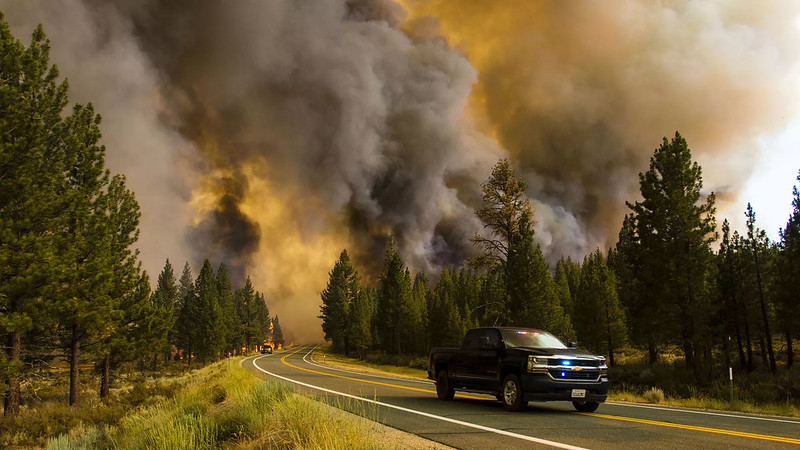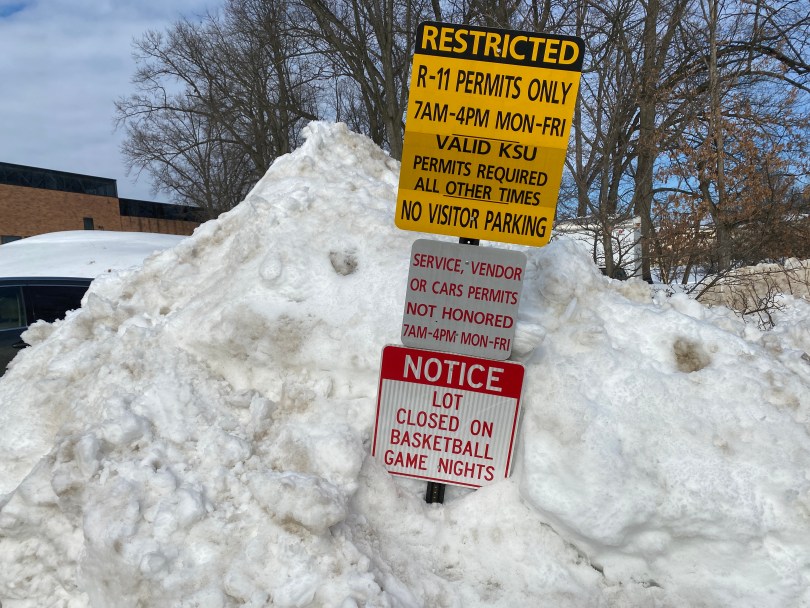
Photo via Flickr
As I’m writing this article in February, there is a wildfire burning in Laguna Beach, California, that forced evacuations — an occurrence that used to be rare at this time of year, but not anymore. Parts of Southern California are experiencing a heatwave that’s fueling winter wildfires that can potentially send smoke thousands of miles outside of California.
Jana Houser, Ph.D., is a professor of meteorology at Ohio University. She told Climate360, “We [Ohioans] can periodically notice the effects of wildfires out west when the fires become so numerous and large that their smoke enters the jet stream of the upper atmosphere.”
In July 2021, Public Health Dayton and Montgomery County in western Ohio issued an air quality alert, in part due to smoke from fires out west. Smoke from those fires made it difficult for those with pre-existing conditions, young children and elderly people to breathe.
According to the New York Department of Health, inhaling carbon monoxide generated by smoke decreases the body’s oxygen supply, thus causing irritation, headaches and other immediate effects, and can also lead to a heart condition called angina.
“Unfortunately, with the current scenarios we are facing, it looks like we will continue to see increases in wildfires, particularly out west,” Houser said. “With fires occurring earlier in the year and going later into the year, winter snows have not been particularly replenishing, and this takes away a natural slow-release water source which is crucial to keeping the ground moist later into the season.”
Houser is talking about the limited amount of snowfall in the mountains of Southern California, something that’s not been a problem in Ohio. While Laguna Beach has been suffering through a heatwave and wildfire, parts of Ohio are suffering through a different kind of extreme weather event: blizzards. Toledo in northwestern Ohio recorded its fourth-largest snowfall in history on Feb. 2, with 14.5 inches of snow falling.
Dr. Stephen Markowiak, a trauma surgeon at the University of Toledo, said that he doesn’t worry too much about the effects of wildfires right now because he’s more concerned with health hazards caused by the effects of global warming closer to home.
“We don’t necessarily have a wildfire problem here in the Midwest, but we have other health problems,” he said. “I’m on trauma call here at the hospital so [if a blizzard] contributes to increased car accidents, I’m going to see that. If there are people that are homeless that are exposed, I’m going to see those hypothermia patients potentially.”

Photo by Grace Springer
Still, there is a growing concern in Ohio about all that smoke coming from western wildfires. So, what can we do about it? It might be easy for Ohioans to demand that California deal with this problem, so it doesn’t affect people across the country, but the reality is global warming and all that comes with it is a worldwide problem, one we have to solve together. Keep in mind, according to Politico, nearly 60% of forests are on federal land, and are the responsibility of the federal government, not California.
“We need to reevaluate our firefighting tactics and our fire prevention tactics so that we can gradually bring the forest system back to a state reminiscent of the pre-developed era.” Houser said. “Slowly burning out undergrowth that does not need to be there, while also trying to conserve assets and fight off the most dangerous fires.”
Houser also emphasized the importance of warning civilians about building homes in areas that are prone to wildfires. This sentiment extends across the board when it comes to extreme weather conditions across the country. Houser said that people who live in areas that suffer from hurricanes and flooding should instead opt to live in safer locations.
If the effects of climate change like wildfires and blizzards continue to go unaddressed on a wider level than they currently are, extreme weather will continue to ravage the United States on a national level. Whether or not you must deal with the immediate effects of wildfires or blizzards, being equipped to mitigate these effects is becoming increasingly necessary.
